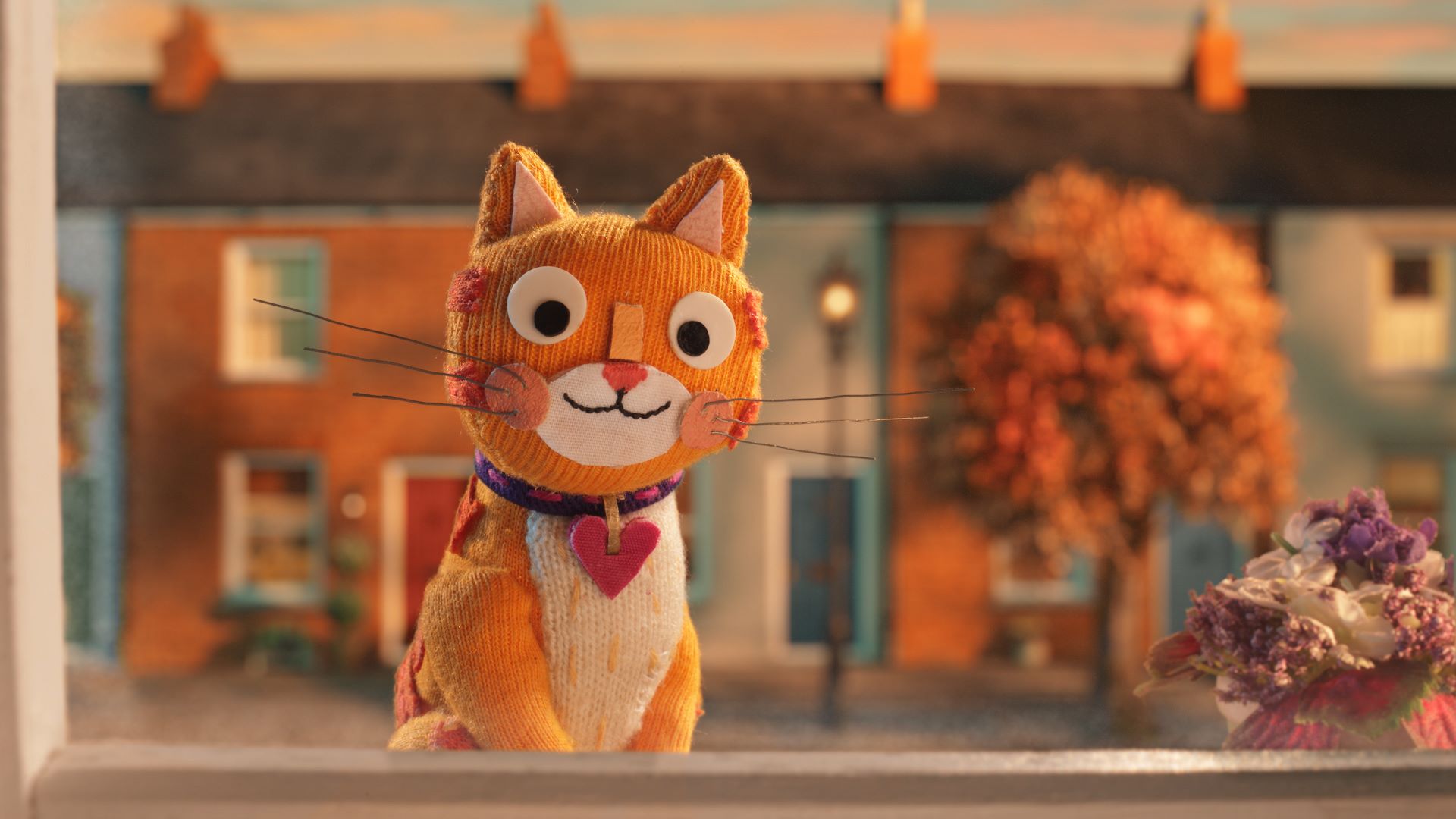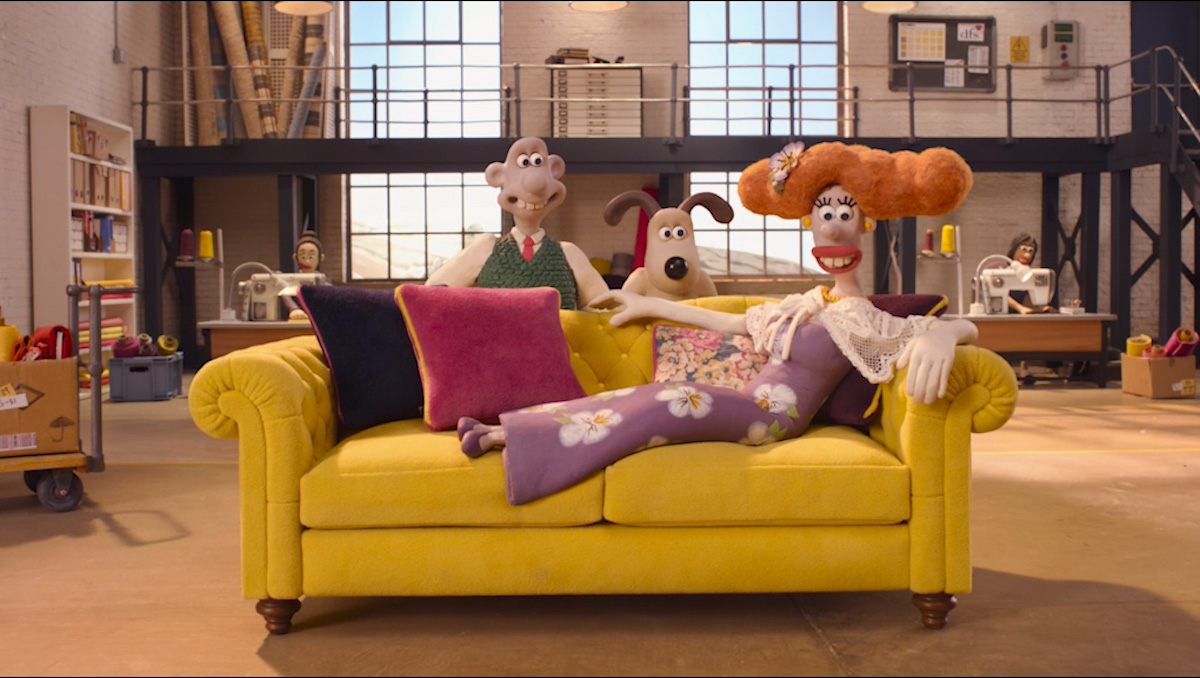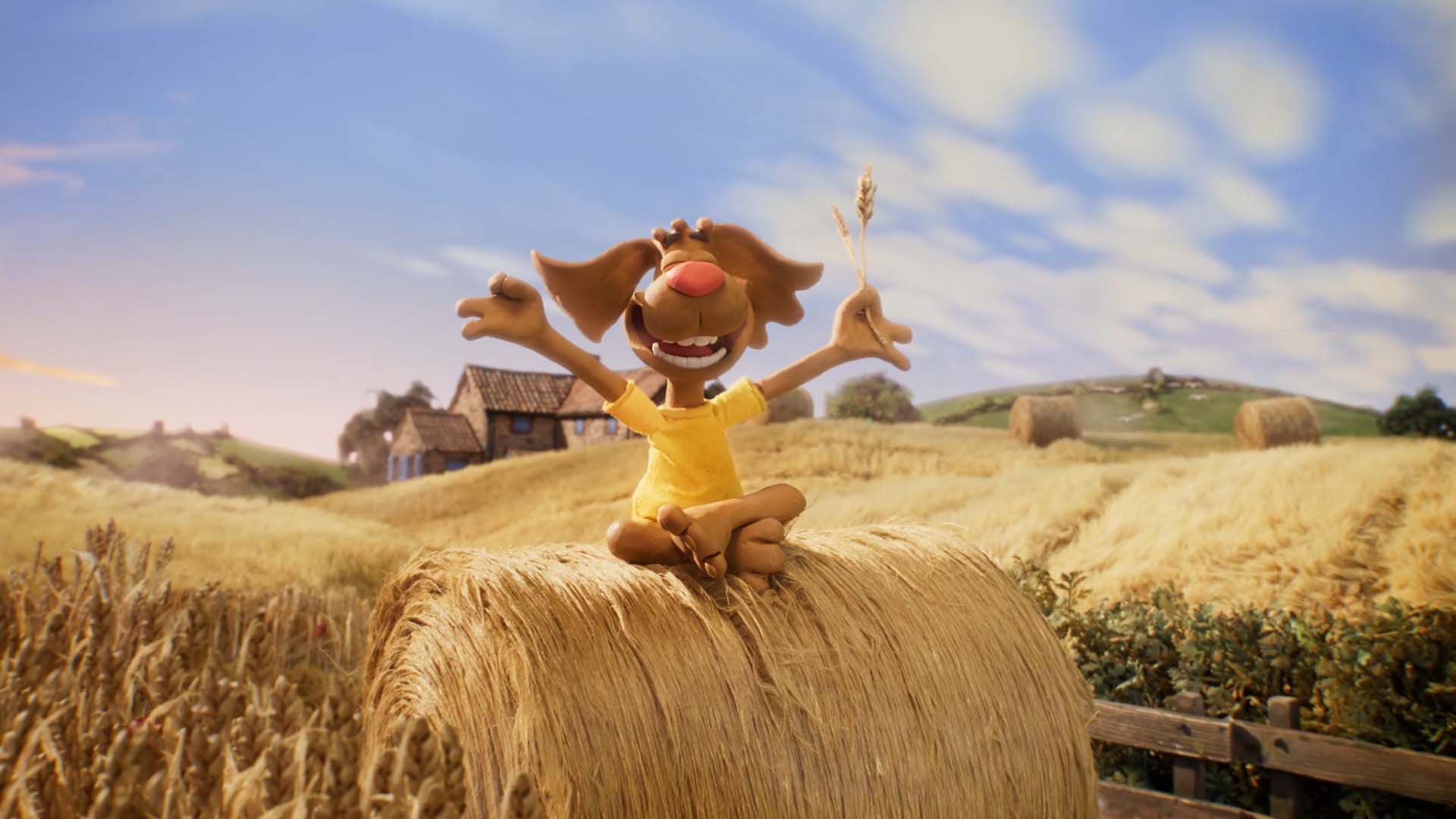For a lifetime of devotion... give them some emotion
In a new opinion piece, Aardman commercial director Rob Goodchild considers the value of emotion in advertising.
Don’t mention the 'R' word! The UK is still in growth, albeit just, and the rest of the world isn’t that much better.
As the cost of living crisis bites we’re already seeing the shelves full of bulk buys and cut price essentials. When recession hits, demand reduces, prices fall and retailers come to the rescue! Fighting each other with low-low prices.
So for trusted brands, there’s a pickle (Branston or Bramwells?). Shoppers will not necessarily reduce the number of items in their basket, but they will try to reduce their spend, which means either substituting for a cheaper alternative or doing without. Neither is a desired outcome.
When the customer makes this decision, it’s generally not a rational one, it’s emotional. Take a look at the last 10 years or more where we have been constantly in recession and turmoil, and look at who’s been gradually gaining or holding share. From luxury goods to everyday items, overall markets may have shrunk or stagnated but many businesses have held up or grown. This is often because they have made the decision to build their marketing programmes to make the emotional connection with their audience. Now more than ever it’s the brand manager’s job to make their product the untouchable item, the one thing you can’t compromise, the baby that you won’t chuck out with the bathwater.
This is where you need consumer’s hearts to rule their heads. Your product may taste better, clean better, smell better, function better, or whatever, but it’s amazing what we might sacrifice for a few pennies in the pocket. Of course, the budget brands don’t cede that space, they are savvy at getting someone to think twice (and in many cases look twice). It’s therefore up to brands to ensure they have built that equity with their audience and set themselves apart from the budget brigade. Even if they do need to resort to some short term tactics, the emotional attachment will make that purchase decision easier. To quote Mark Ritson from a recent Marketing Week article you need to “set up the market in a way that will later benefit the brand”. An emotional attachment now will reap the benefits down the line, when you move to convert.
Cadbury’s are always a brilliant case in point. Most of us know the story. They were struggling on the back of a serious recall, and obesity was firmly in the sights of health campaigners (Jamie Oliver was just sharpening his pencil at this point). They needed to remind people of the love they had for their brand and their products, and to find that place back in the shoppers’ hearts. Boy! Did they do it with style! As soon as that gorilla brought that drumstick down, their fortunes turned and the love started returning. Just 12 months after the salmonella scandal they were voted Britain’s most trusted chocolate and confectionary brand, according to a Reader’s Digest survey. In 2022 they won the IPA effectiveness award for their Glass and a Half in Everyone campaign (started in 2018), as they once again used an emotional hook to rekindle the love for their chocolate.
During most of this period the world was in economic strife, and in the case of 2018, a global pandemic was around the corner. Yet in the face of this Cadbury’s increased market share, achieved sales growth, and put billions on their brand value. Pricing strategies and a bit of shrink-flation might’ve helped, but the fact that they had made such a strong connection with their customer meant that they were one of the few luxuries that stayed in the basket.
Emotional connection doesn’t have to be weepy or gushy, but it needs to resonate. The audience need to respond emotionally to what they are seeing or doing and for it to remain memorable and influence decisions. As many marketers will confirm, a powerful narrative, strong relatable characters and understanding of motivational drivers are at the root of this connection.
Over the years Aardman have had the privilege to work on many campaigns, where we have been given the task to shift a perception or bring some love to a brand. Our long running DFS campaign was all about elevating the status of their brand to focus on quality, desirability and their UK manufacturing. They no longer wanted to battle in the basement, where C-list celebrities were screaming “SALE, SALE, SALE”! In this case they knew that a sofa purchase is not a regular occurrence so they needed to be sowing those seeds with their potential customers well in advance, so when decision time came they already knew where to come. We achieved this by creating relatable characters, inspired by employees within the DFS business, to demonstrate their commitment to quality and UK manufacturing, setting apart from the competition by giving comfort to their potential customers that it would be an assured purchase from a reliable business. Over time we built on the success of our initial cloth character campaign and even brought Wallace and Gromit into the mix, doubling down on the Britishness and using the equity from well-loved characters to turn up the emotional dial. This emotional approach was then doubled up with some short term CTAs to drive sales during peak selling periods, thus increasing overall effectiveness. The campaign has since moved on with an agency change, but they continue to use provocative hooks (What’s your thing?) to keep their brand elevated and now appear well placed to ride out what will be a challenging trading year. We remain proud of our contribution to their ongoing success.
Recently we have been working with Nestle France on a trust campaign for their Chocapic brand. They wanted to show that not only was their cereal tasty and appealing, but also a responsible choice, from nutritional value through to ethical manufacturing. They wanted their customers to know they were making a good decision, making them less likely to ditch for a budget alternative while making sure they kept the same levels of fun and humour that made them a family favourite. We developed their famous Pico character in a 3D stop frame style, which was a visual demonstration of authenticity and quality, and then created a commercial full of life that gave the message clearly. Produced to Albert sustainability standards the campaign clearly showcased that, in a category with a bad reputation, that the compromise for switching consumers would be more than just taste.
So, what makes the difference? At Aardman we believe it’s the power of compelling characters and stories, along with a dose of comedy that makes our work so memorable. It’s been in the DNA of the business since Peter Lord and David Sproxton started making Morph on the kitchen table and continues to this day. Emotional connection comes not just from setting up the gags to be knocked down with the punchline, but those subtleties that make those characters real. The knowing look, the crumple of the forehead, an impatient tap of the foot. Whether we are creating feature films or 3 second stings, it’s the passion for the small stuff and the ability to truly relate that makes all the difference, and something which we believe sets our business apart. We know how to do it, we love what we do, and that shows…
Rob is heading to SXSW this month to show off our credentials for creating brilliantly crafted character, stories and worlds in ground breaking spaces. Get in touch below to arrange a meeting.


